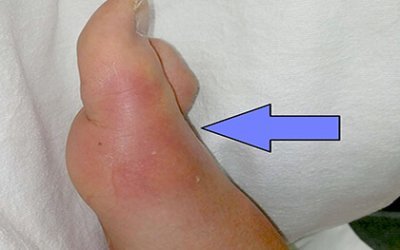How to Deal with Headaches in Corporate Life

In today’s fast-paced corporate world, it is not uncommon for professionals to experience headaches and migraines. The demanding nature of corporate life, with its long hours, high stress levels, and sedentary lifestyle, can take a toll on our physical and mental well-being. In this blog post, we will explore the causes and complications of headaches in corporate life, as well as provide strategies for maintenance and home remedies, including alternative treatments like aromatherapy and yoga.
Causes of Headaches in Corporate Life
Several factors in the corporate environment can contribute to the occurrence of headaches:
Stress: High levels of stress are a common trigger for headaches. The pressure to meet deadlines, handle demanding clients, and achieve targets can lead to tension headaches or even migraines.
Poor Ergonomics: Sitting for long hours in front of a computer without proper ergonomics can strain the neck, shoulders, and back, leading to tension headaches.
Eye Strain: Staring at screens for extended periods of time can strain the eyes and cause headaches.
Irregular Meal Patterns: Skipping meals or relying on unhealthy snacks during busy workdays can lead to low blood sugar levels, triggering headaches.
Lack of Physical Activity: Sedentary lifestyles, often associated with corporate jobs, can contribute to muscle tension and poor circulation, both of which can lead to headaches.
Complications of Headaches in Corporate Life
Headaches can significantly impact an individual’s productivity and overall well-being. Some of the complications associated with headaches in the corporate world include:
Decreased Productivity: Frequent headaches can make it difficult to concentrate and perform at optimal levels, leading to a decrease in productivity.
Increased Absenteeism: Severe headaches or migraines may force individuals to take time off work, resulting in increased absenteeism.
Impaired Decision-Making: Headaches can affect cognitive function, making it harder to make sound decisions and solve problems effectively.
Impact on Mental Health: Chronic headaches can take a toll on mental health, leading to increased stress, anxiety, and even depression.
Maintenance Strategies for Headaches in Corporate Life
While it may not be possible to completely eliminate headaches in a corporate setting, there are several strategies that can help manage and reduce their frequency:
Stress Management: Implement stress management techniques such as deep breathing exercises, mindfulness meditation, and regular breaks to alleviate stress levels.
Ergonomic Considerations: Ensure that your workspace is ergonomically designed to minimize strain on the neck, shoulders, and back. Use an adjustable chair, maintain proper posture, and position your computer screen at eye level.
Regular Breaks: Take short breaks throughout the day to stretch, walk, or engage in relaxation exercises. This can help prevent muscle tension and improve blood circulation.
Healthy Eating Habits: Maintain regular meal patterns and opt for nutritious foods that provide sustained energy throughout the day. Avoid skipping meals or relying on sugary snacks.
Stay Hydrated: Dehydration can contribute to headaches, so make sure to drink an adequate amount of water throughout the day.
Regular Exercise: Incorporate physical activity into your daily routine, even if it’s just a short walk during lunch breaks. Exercise helps reduce stress, improve circulation, and release endorphins, which can alleviate headaches.
Practice Good Sleep Hygiene: Ensure you are getting enough sleep and establish a consistent sleep routine. Poor sleep can contribute to headaches and worsen their severity.
Home Remedies for Headaches
In addition to maintenance strategies, there are several home remedies that can provide relief from headaches:
Apply a Cold or Warm Compress: Placing a cold or warm compress on the forehead or the back of the neck can help alleviate headache pain.
Use herbs in daily life: combinations like Drumsticks & black pepper can be a relief from headaches. Extract the juice from the drumstick leaves and mix with the ground black pepper into a smooth paste. Apply on the forehead. Know more remedies for Headaches.
Practice Relaxation Techniques: Engage in relaxation techniques such as deep breathing, progressive muscle relaxation, or guided imagery to reduce stress and tension.
Stay in a Dark, Quiet Room: Find a calm and quiet environment to rest and relax when experiencing a headache.
Massage: Gently massaging the temples, neck, or shoulders can help relieve muscle tension and alleviate headaches.
Stay Hydrated: Dehydration can worsen headaches, so make sure to drink plenty of water throughout the day.
Use Essential Oils: Aromatherapy with essential oils such as lavender, peppermint, or eucalyptus can provide relief from headaches. Apply a few drops to a diffuser or dilute with a carrier oil and massage onto the temples.
Alternative Treatments for Headaches
Alternative treatments like aromatherapy and yoga can also be beneficial in managing headaches:
Aromatherapy: Essential oils, as mentioned earlier, can be used in aromatherapy to provide relief from headaches. Inhaling the aroma or applying diluted oils to the skin can have a calming effect.
Yoga: Practicing yoga regularly can help reduce stress, improve posture, and promote overall well-being. Specific poses, such as the Child’s Pose or the Forward Fold, can help relieve tension in the neck and shoulders.
Meditation: Incorporating meditation into your daily routine can help reduce stress and promote relaxation, which can alleviate headaches.
Acupuncture: Acupuncture, a traditional Chinese medicine practice, involves inserting thin needles into specific points of the body to promote healing and relieve pain, including headaches.
Chiropractic Care: Chiropractic adjustments can help improve spinal alignment, reduce muscle tension, and alleviate headaches.
It is important to note that while these alternative treatments may provide relief for some individuals, it is advisable to consult with a healthcare professional before trying them, especially if you have any underlying health conditions.
Conclusion
Headaches can be a common ailment in the corporate world, but with the right strategies and home remedies, they can be effectively managed. By incorporating stress management techniques, maintaining healthy habits, and exploring alternative treatments like aromatherapy and yoga, individuals can find relief from headaches and enhance their overall well-being in the demanding corporate environment.
Dos
Stay Hydrated:
Do: Drink an adequate amount of water throughout the day to maintain proper hydration.
Establish a Regular Sleep Schedule:
Do: Aim for 7-9 hours of quality sleep each night and maintain a consistent sleep schedule.
Identify and Manage Stress:
Do: Practice stress-reducing techniques such as meditation, deep breathing, and mindfulness.
Maintain Good Posture:
Do: Be mindful of your posture, especially during prolonged periods of sitting on the computer.
Follow the 20-20-20 Rule:
Do: Take breaks during screen time by looking at something 20 feet away for at least 20 seconds every 20 minutes.
Incorporate Regular Exercise:
Do: Engage in regular physical activity to promote overall well-being.
Adopt a Well-Balanced Diet:
Do: Maintain a healthy diet, including regular meals and avoiding known trigger foods.
Use Ergonomic Furniture:
Do: Arrange your workspace with ergonomic furniture and tools to minimize strain.
Consider Natural Remedies:
Do: Explore natural remedies like aromatherapy, herbal teas, and acupressure under the guidance of a healthcare professional.
Seek Professional Guidance:
Do: Consult with a healthcare professional for personalized advice and treatment options.
Don’ts
Ignore Regular Sleep Patterns:
Don’t: Sacrifice sleep or have irregular sleep patterns consistently.
Overuse Pain Medications:
Don’t: Rely on over-the-counter pain medications excessively, as it can lead to rebound headaches.
Skip Meals:
Don’t: Skip meals or follow irregular eating patterns.
Neglect Stress Management:
Don’t: Ignore stress-reduction techniques; chronic stress can contribute to headaches.
Maintain Poor Posture:
Don’t: Slouch or maintain poor posture, especially during desk work or screen time.
Consume Excessive Caffeine or Alcohol:
Don’t: Overindulge in caffeine or alcohol, as both can contribute to headaches.
Disregard Environmental Triggers:
Don’t: Ignore environmental factors such as bright lights, loud noises, or strong odors if they trigger headaches.
Delay Professional Consultation:
Don’t: Hesitate to seek professional help if headaches persist or worsen.
Overlook Hormonal Factors:
Don’t: Disregard the impact of hormonal fluctuations, especially for women, in headache management.
Avoid Regular Eye Checkups:
Don’t: Neglect regular eye checkups, especially if you spend extended periods in front of screens.
Send Us A Message
FAQs
- You can prevent headaches by taking regular breaks to rest your eyes and stretch your body, maintaining good posture, ensuring proper lighting, staying hydrated, managing stress, and setting up your workstation ergonomically.
- Seek medical attention if your headaches are severe, persistent, or accompanied by other symptoms such as vision changes, numbness, weakness, or confusion. It's also important to see a doctor if your headaches significantly interfere with your daily activities.
- Yes, stress management can help prevent headaches. Practicing relaxation techniques such as meditation, deep breathing exercises, and yoga can help reduce stress levels and decrease the likelihood of stress-related headaches.
- To maintain good ergonomics at your workstation, adjust your chair so your feet are flat on the floor and your knees are at a 90-degree angle. Position your monitor at eye level about an arm's length away, use a keyboard and mouse that promote a neutral wrist position, and take regular breaks to stretch your muscles.














